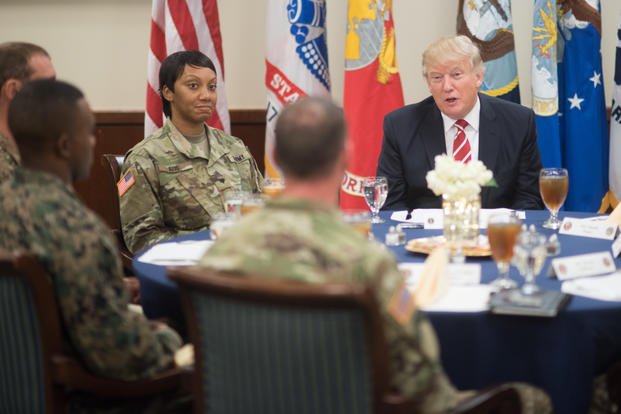Changes in the White House could mean changes that impact your veteran hiring initiative. So what will the coming years bring and will your recruitment and retention program be impacted?
Veteran hiring programs first rose to prominence around 2011 when veteran unemployment rates were quickly surpassing civilian unemployment rates, particularly for the post 9/11 veterans. Since then, veteran hiring has become a priority for both the public and private sector.
In his first week in office, President Trump instituted an across-the-board federal hiring freeze prohibiting hiring for new and existing positions with exceptions made for national security, public safety, and the military.
Thirty percent of federal employees are veterans, and incentives such as veterans preference programs attracted many transitioning service members to government service.
The Obama administration did not institute hiring freezes but did slow wage growth for federal workers as a budget tool. There were 1.7 million federal employees as President Obama left office which was 10 percent more than when he took office. Under his predecessor, President George W. Bush, the federal workforce grew by 17 percent.
So what does all this mean for private sector veteran hiring programs? It most likely means the volume of candidates you see coming in through your veteran recruitment program will grow. With fewer government jobs to compete for, more and more veterans will turn to the private sector to establish a post-service career. This will be good news for those companies having a hard time finding enough veterans to hire but it also means now more than ever, you need to implement a quality veteran recruitment and retention program.
The federal hiring freeze also means more competition among job seekers for employment in the private sector. That's good news for employers because it means a larger number of quality candidates for your company.
Finally the hiring freeze may signal a new era of "less is more" in the federal workforce. Those military members who will transition in the future may have to take federal employment off their list of career possibilities. Service members will need to intensify their post-military career planning using tools like the Transition App and the Military Skills Translator to help prepare for their transition and communicate their military experience. Companies should endeavor to partner with organizations that help identify service members before they transition for potential employment and use state of the art tools and resources to let veterans know about veteran-specific hiring programs.
While on the campaign trail, President Trump pledged to increase funding for job training, placement services, and business loans for veterans. This could all mean a softer handoff of the service member from military service to the civilian business world and providing them more tools than are currently available. What remains unchanged is the private sector commitment to finding and retaining quality veteran talent.





